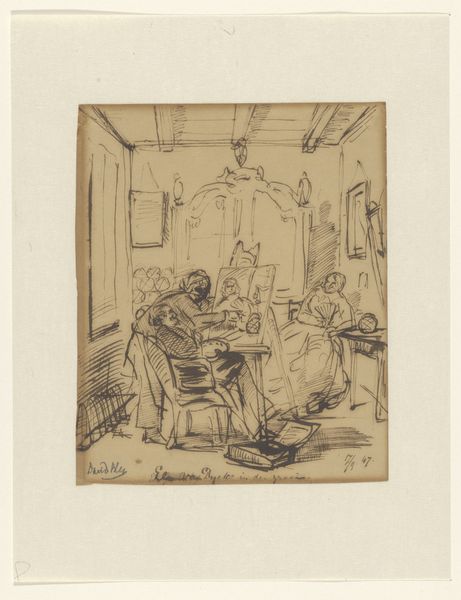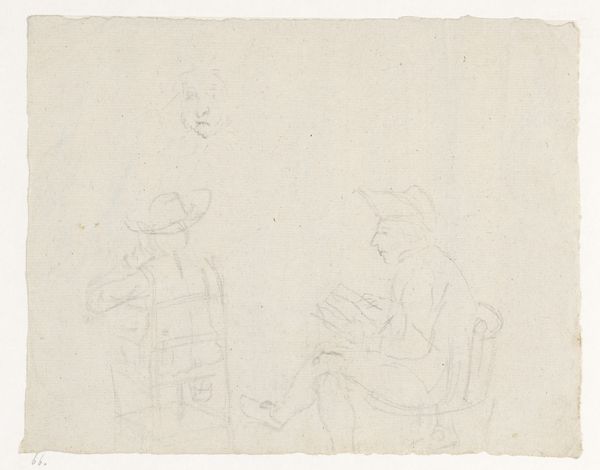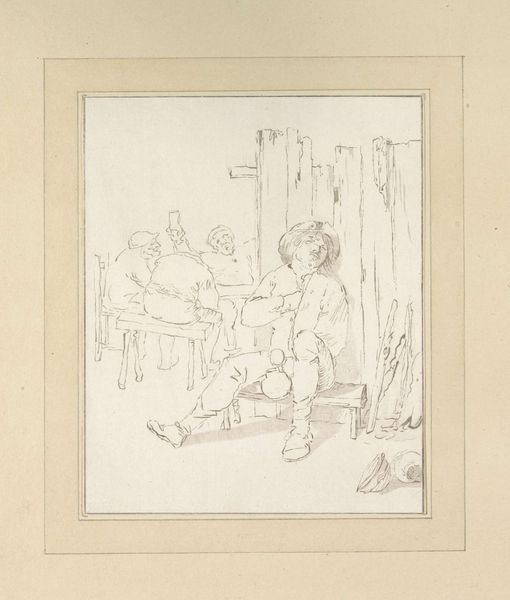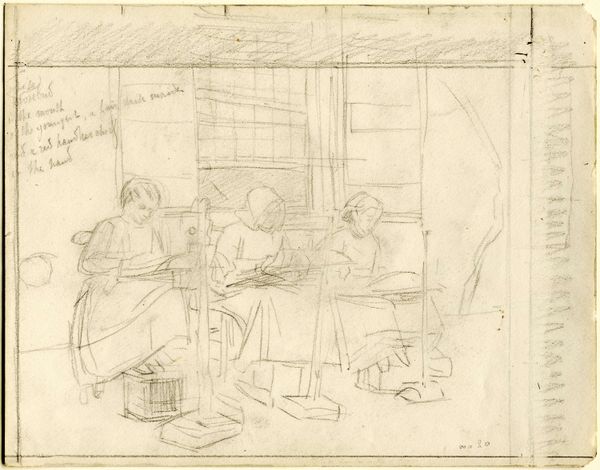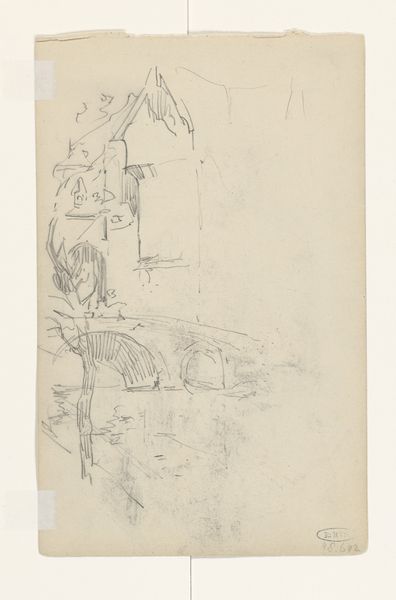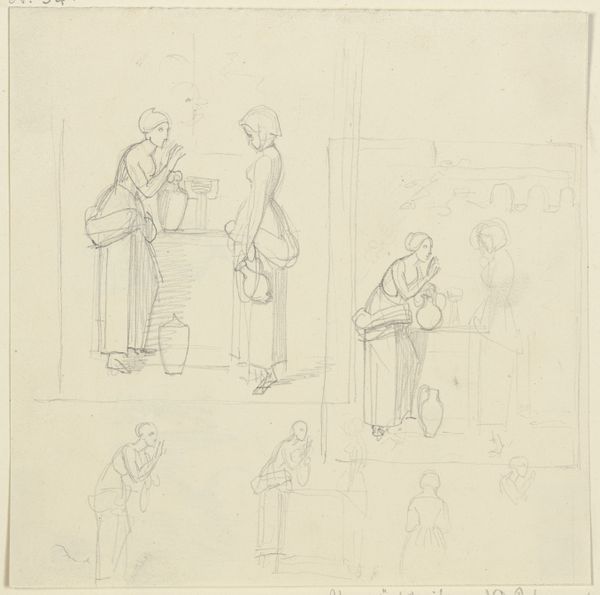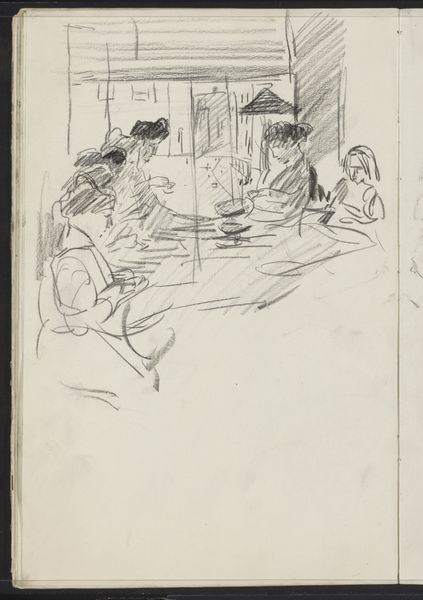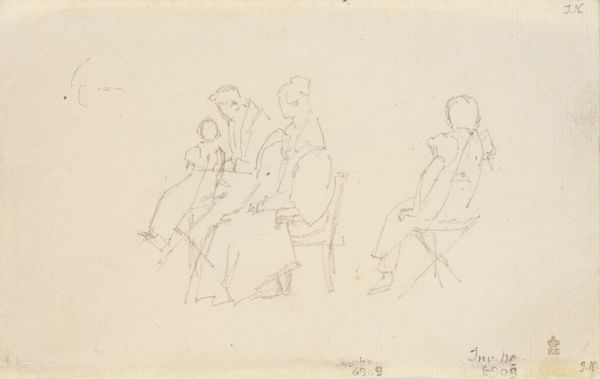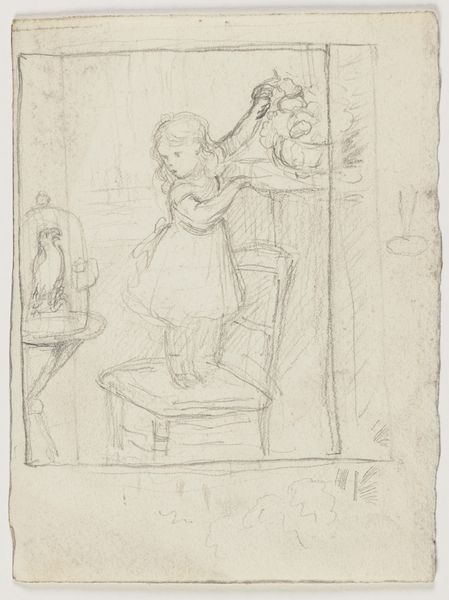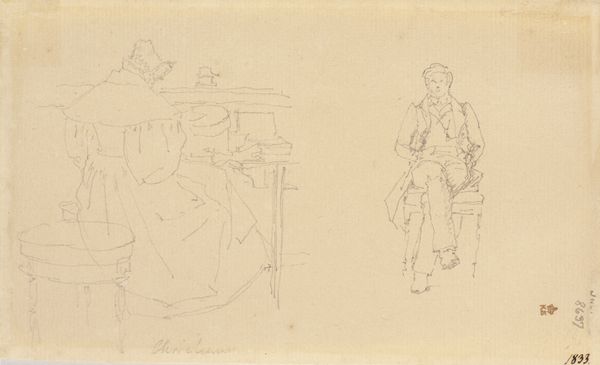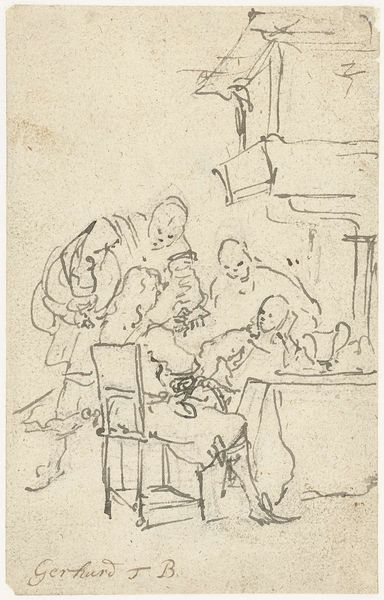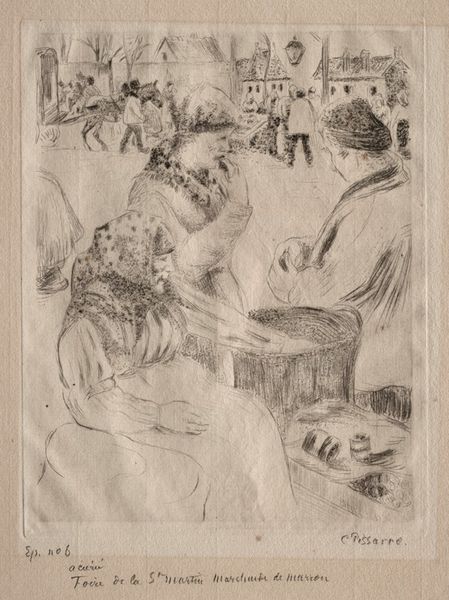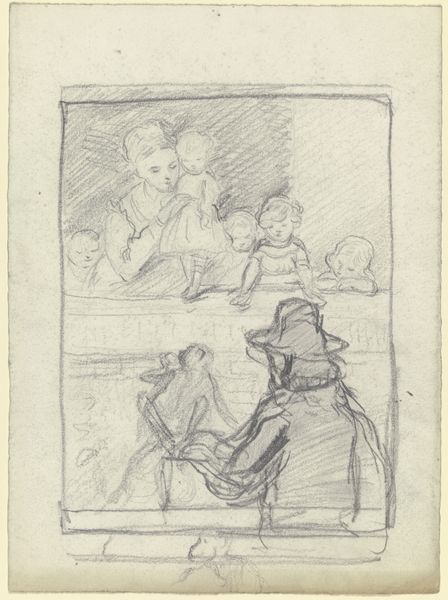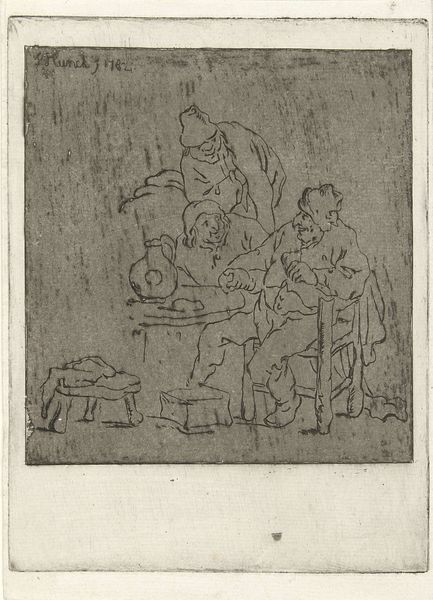
drawing, ink, pen
#
portrait
#
drawing
#
comic strip sketch
#
blue ink drawing
#
narrative-art
#
cartoon sketch
#
personal sketchbook
#
ink
#
idea generation sketch
#
sketchwork
#
ink drawing experimentation
#
folk-art
#
line
#
sketchbook drawing
#
pen
#
genre-painting
#
storyboard and sketchbook work
#
sketchbook art
#
realism
Dimensions: height 194 mm, width 158 mm
Copyright: Rijks Museum: Open Domain
Editor: Bernhard Schreuder’s “Dronken boer in herberg,” created around 1775, uses pen and ink to capture what seems like a casual tavern scene. There's a slumped figure in the foreground, looking rather worse for wear, and others celebrating in the background. I find the rough, quick strokes strangely compelling. What strikes you about this piece? Curator: It’s interesting to consider how this drawing reflects social attitudes towards the working class and leisure in 18th-century Dutch society. Scenes of everyday life, like this tavern, gained popularity. But how were such images used? Were they simple depictions, or did they carry a moralizing message about drunkenness and idleness? Consider the placement of the 'dronken boer' – he’s quite literally put on display. Editor: So, you think the artist might be making a social comment about overindulgence? It seems the tavern was not just a space for recreation. Curator: Precisely. And how do you think the setting contributes to this? The seemingly simple background, almost like a stage, isolates this figure and throws the focus on his posture and what it represents. Was this for a wider audience or kept within private circles? The drawing medium itself suggests something less formal. Editor: I see what you mean. It’s not just a snapshot; the composition frames the "dronken boer" almost as a cautionary tale. I hadn't thought about that. I had only noticed the linear form. Curator: And look at the other figures – do they offer a counterpoint? Are they carefree revelers, or are they subtly judging their companion? Considering these dynamics provides us with the narratives that were at play in that society. Editor: This has really shifted my understanding of the piece. It is not only a drunken image. Thinking about its reception changes everything. Thanks for clarifying it for me! Curator: Absolutely! It’s these questions of power and perception that truly animate historical artworks. Analyzing that is as fun as it is essential.
Comments
No comments
Be the first to comment and join the conversation on the ultimate creative platform.
